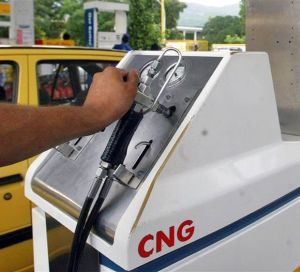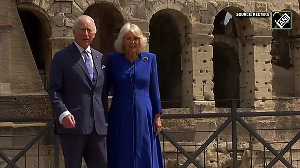 The new gas price of $5.61 per unit will not be adequate to attract investment in exploration as most discoveries in deep sea need a higher rate to be economically viable, top research organisations have said.
The new gas price of $5.61 per unit will not be adequate to attract investment in exploration as most discoveries in deep sea need a higher rate to be economically viable, top research organisations have said.
"We maintain that existing discoveries in deep water require a $8 per million British thermal unit gas price to be viable.
"Therefore, the current pricing policy, in our view, will not lead to new capex in the development of complex deep water discoveries," HSBC said in a research note.
While deep water producers want to produce and sell -- albeit at gas price upwards of $8 -- industrial consumers are willing to pay for these productions, but due to the limit imposed by the current pricing formula, they will have to buy costly imported LNG.
Stating that the 33 per cent increase in gas price from November 1 was negative for new upstream investment, Nomura said the key reason and need behind revising the gas price was to encourage upstream investment by monetising existing discoveries and further encouraging exploration for more gas.
"Given that the revised price is much lower than what upstream companies are demanding, we think the desired investment to monetise the existing discoveries may not take place," it said.
Deutsche Bank said the lack of clarity on gas price for new deepwater discoveries -- which will be higher -- could delay capex and production.
"Another key disappointment compared to consensus expectation was the absence of any annual increase in gas price," it said.
Stating that the gas price hike was disappointing, Barclays said, "It could deter new capex, precluding a rebound in domestic gas output and dimming the long-term outlook for ONGC and Oil India somewhat."
Credit Suisse said $5.6 may work for Reliance Industries' R-Series gas field in the KG-D6 block but the economics for its satellite fields and NEC-25 block are uncertain.
"We think ONGC's ultra-deep water discoveries in KG-D5 and the smaller discoveries in the Mahanadi basin may not be economic at the new gas price, but are also ineligible for the premium price proposed," it said.
Nomura said there is no clarity yet on the likely premium for new discoveries in deepsea and ultra deep waters and so the pace of further exploration will also remain slow.
India's gas deficit is unlikely to improve over the next 5-6 years, implying that reliance on imported LNG is unlikely to abate, CIMB said.
HSBC said while the hike imposes a higher price on the end consumer, it is unlikely to result in investment beyond what the upstream industry would have invested anyway at the old gas price of $4.2 per mmBtu.











 © 2025
© 2025